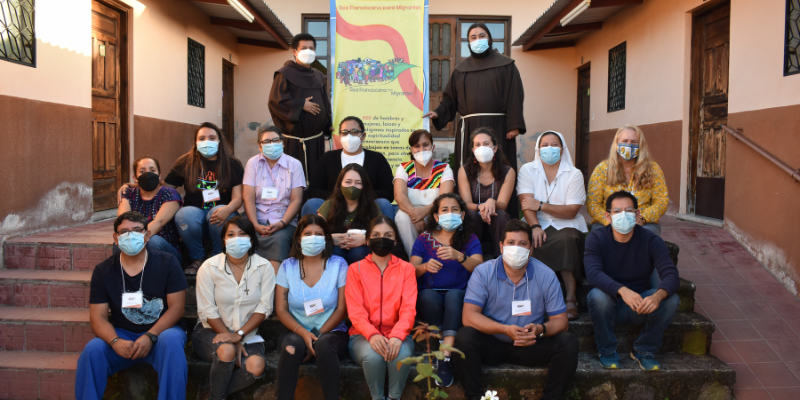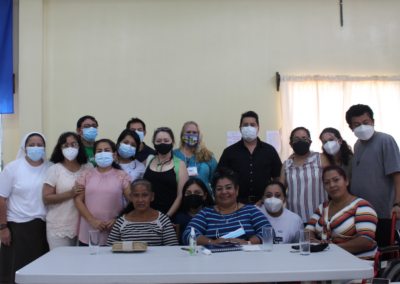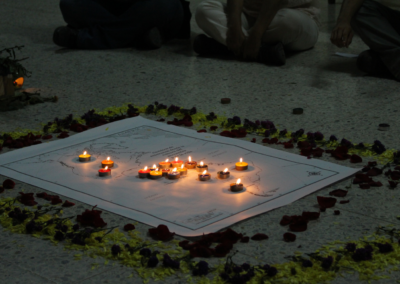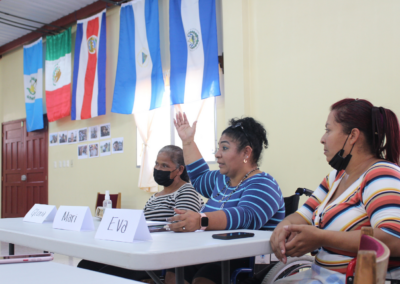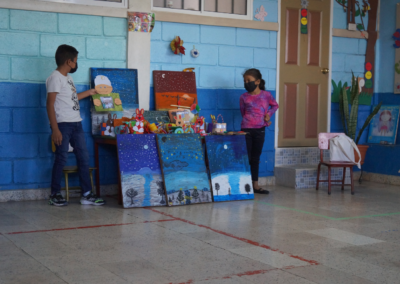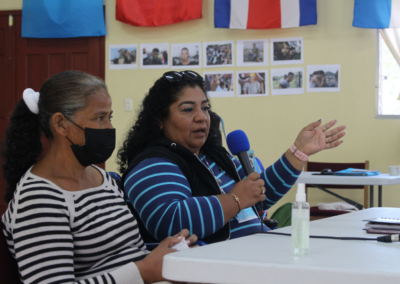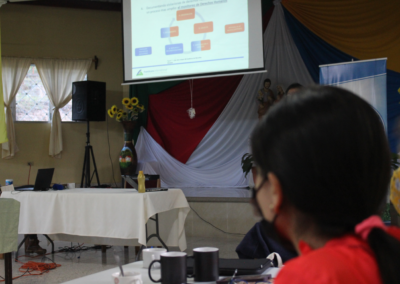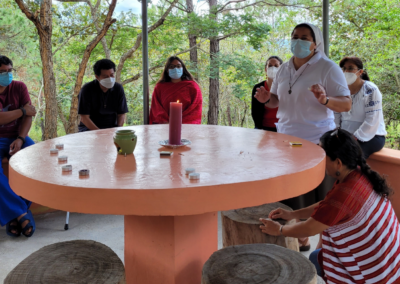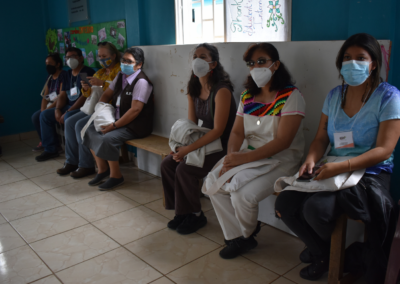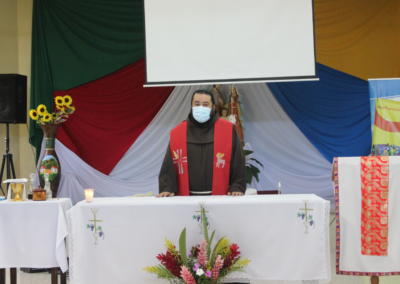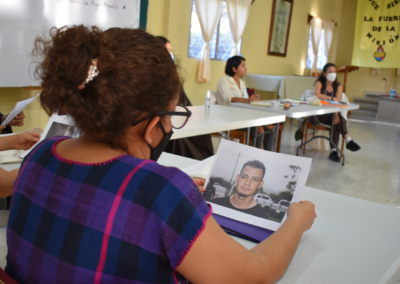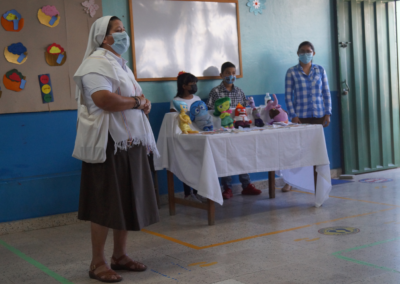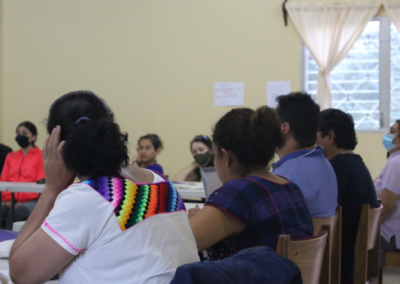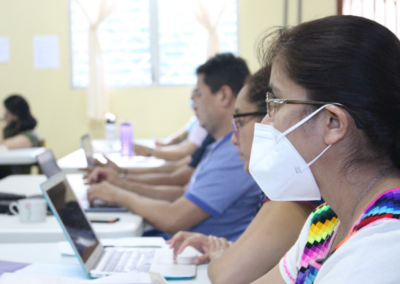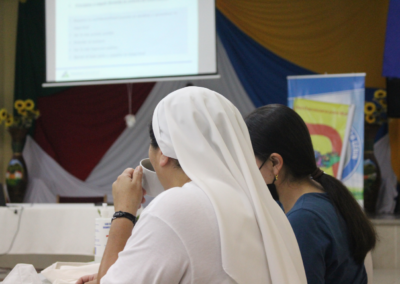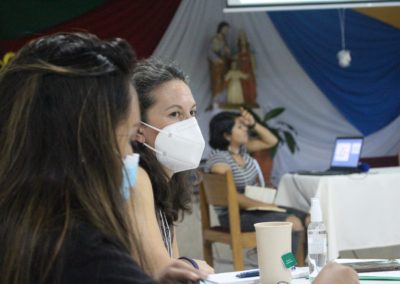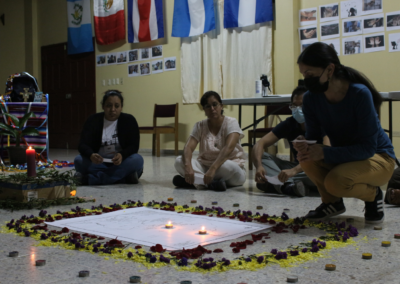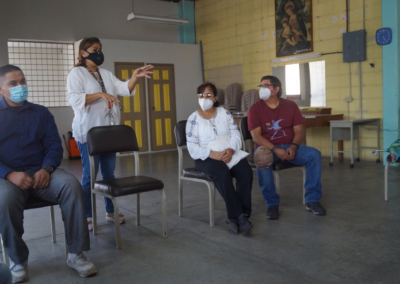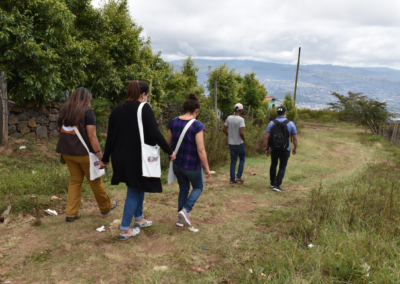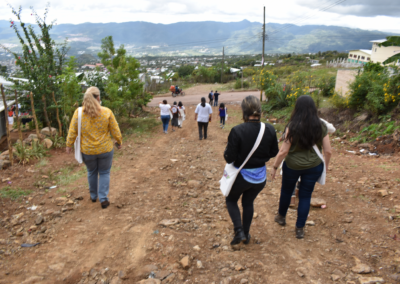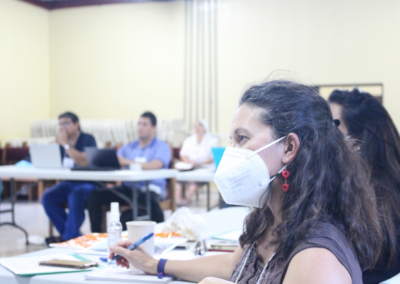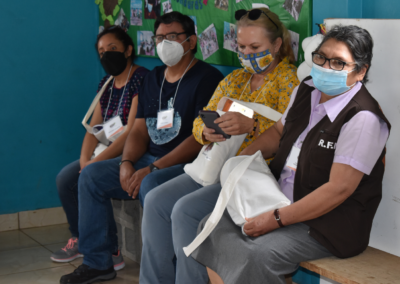The alliance between Franciscans International and the Franciscan Network for Migrants created this training which was offered in 2021. It was divided into two stages: 6 virtual modules and 4 face-to-face days.
One of the areas that the Franciscan Network for Migrants has developed is training for its members on topics of interest that allow them to provide a better service to migrants. The defense of human rights remains one of the principal objectives of the RFM. For this reason, together with Franciscans International, the Franciscan Family’s NGO to the United Nations, the Franciscan Network for Migrants prepared the content for this training course entitled, “Human Rights and Migration.”
The first part was delivered virtually and synchronously, in 6 modules over three months. The second part took place in the vicinity of Tegucigalpa, in person, and was both a challenge and a great joy. A total of 18 people participated, from Mexico (Tenosique, Salto de Agua, Cholula), Colombia (Medellín, Bogotá, Barrancabermeja), El Salvador (San Salvador), Guatemala (C. de Guatemala), Switzerland (Geneva), Italy (Roma), United States (Chicago) and Honduras (Tegucigalpa, La Mosquitia).
During the mornings, the program included visits to places of high outward migration in the vicinity of Tegucigalpa, such as Ciudad Guzmán, Crematorio del Distrito Central and Colonia Ramón Amaya Amador. Experiencing these places allowed us to recognize the context of one of the Central American countries that expels the most migrants from its territory annually. At the same time, we were able to witness the efforts being made to keep hope alive and offer, especially to young people, opportunities that allow them to overcome the lack of employment and the constant threat of organized crime violence present in much of the territory national.
During the afternoon sessions, there was a time to share impressions about the experience in the morning. Likewise, the Franciscans International team made up of Sandra Epal-Ratjen and Ulises Quero, presented a workshop every day that allowed participants to apply the content learned during the virtual part of the training to the events that were observed day by day. That is, the group reflected and transformed first-hand information into context and case analysis to give content and form to an advocacy document. It should be noted that the RFM Advocacy Team, created at the beginning of this year, participated fully in the training, receiving tools that will be useful to continue defending the rights of migrants.
We are grateful for an experience that allowed us to strengthen ties between the attendees. Special thanks to the RFM-Honduras Team who carried out the previous logistical organization and part of the program dedicated to “ritualizing life experience and the psycho-social impact.” Likewise, we are grateful to the Franciscan brothers of the fraternities in San Salvador who supported with accommodation and transfer to 7 participants of the training who arrived in Central America through El Salvador.

